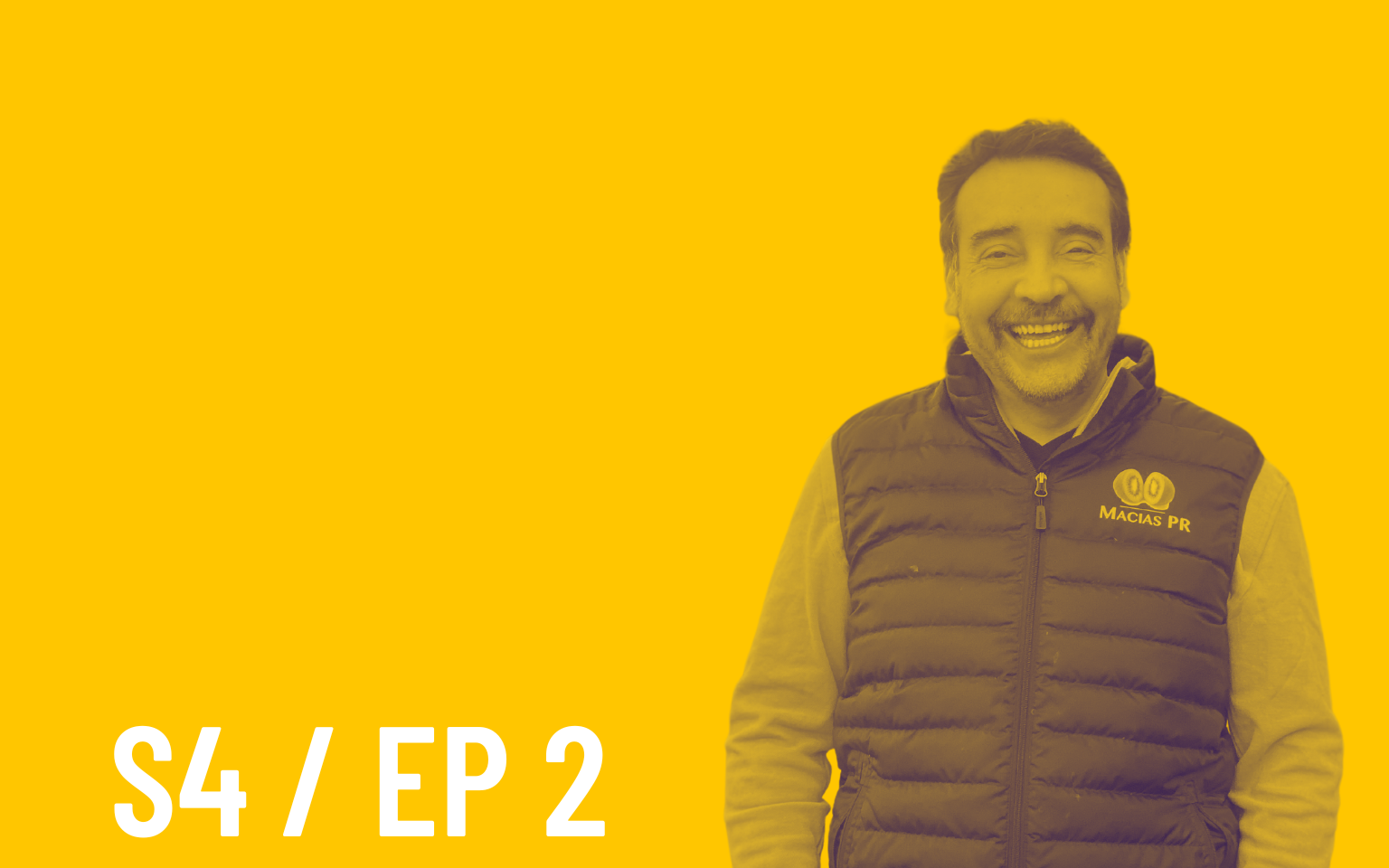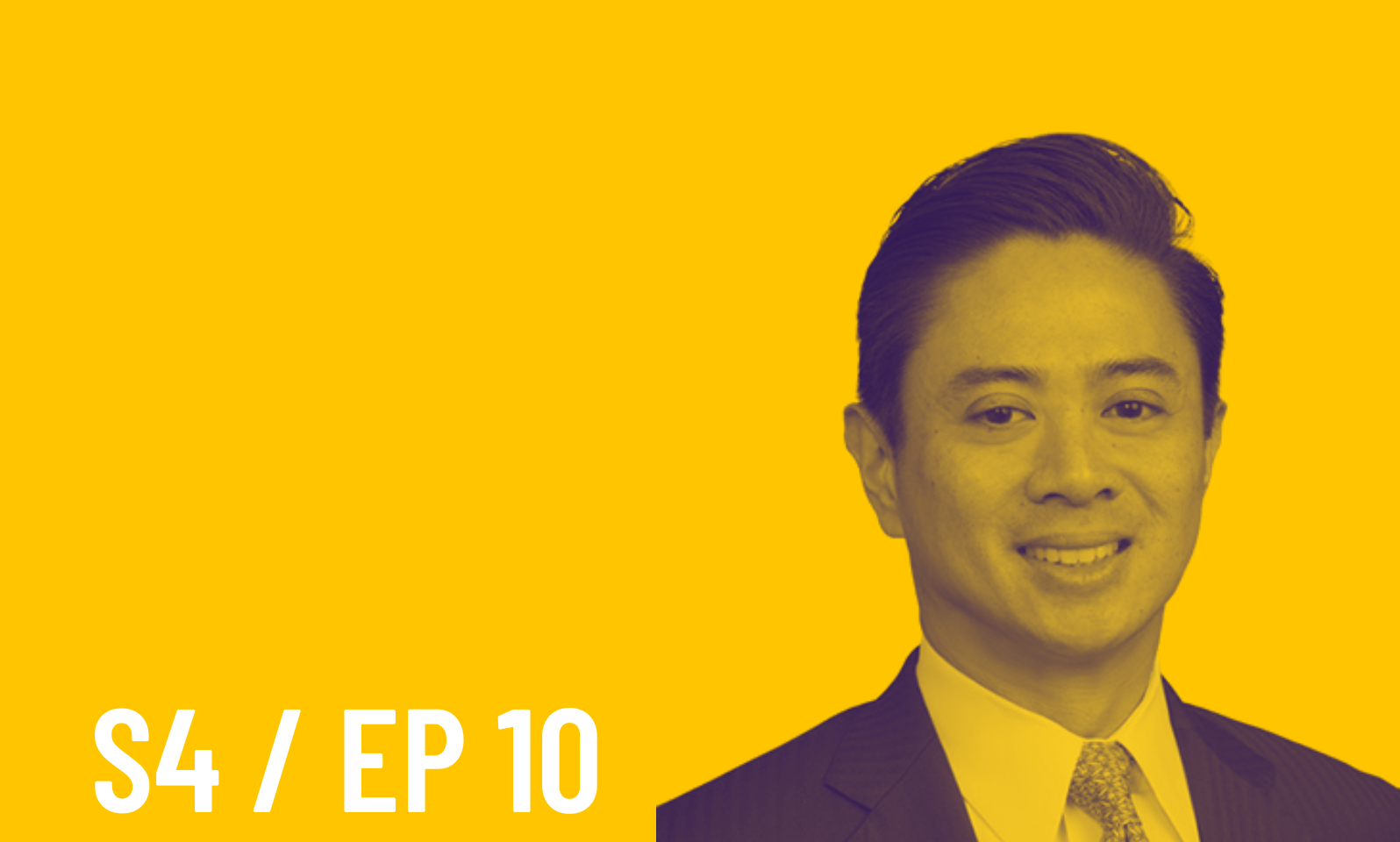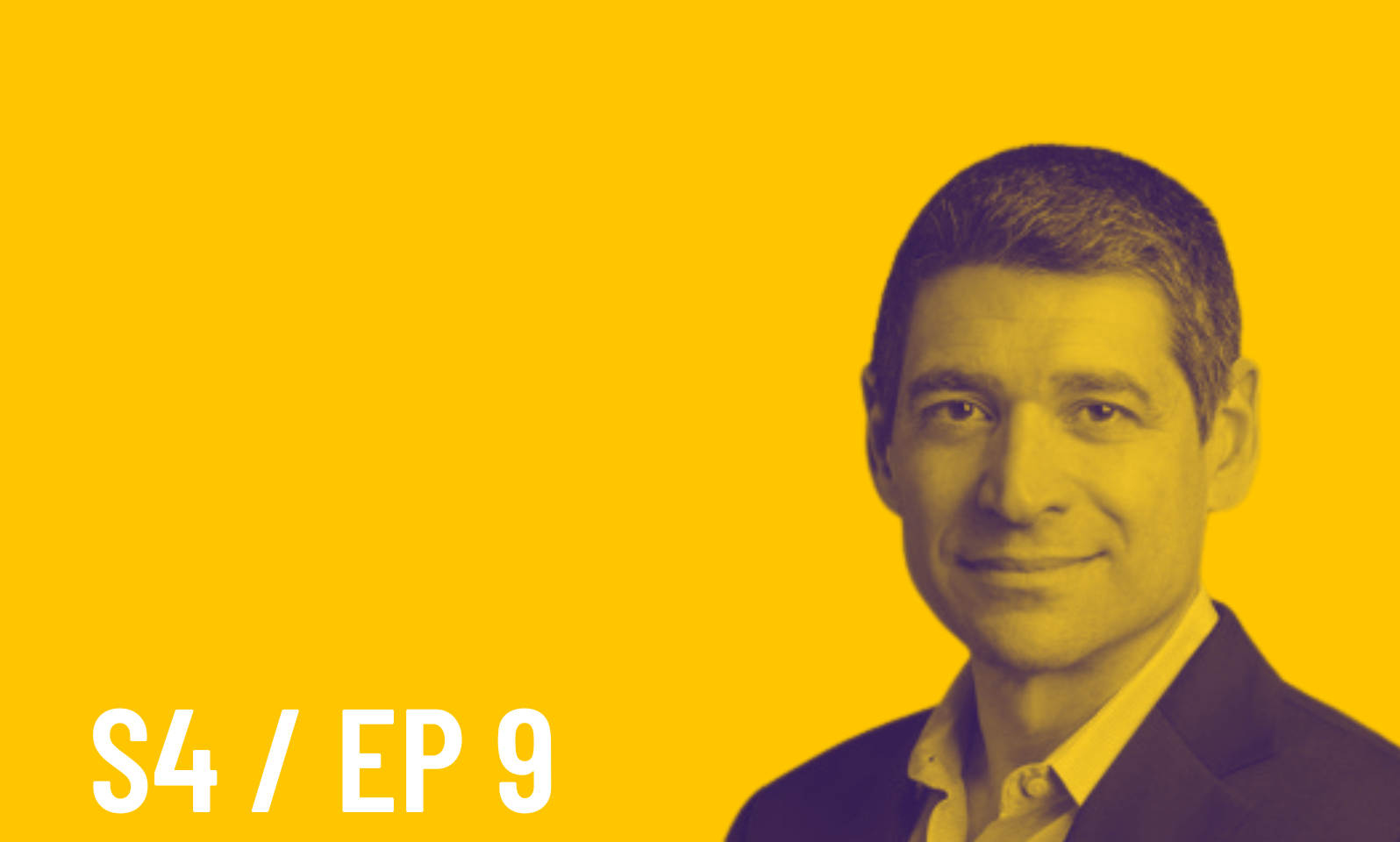SEO Secrets for Healthcare
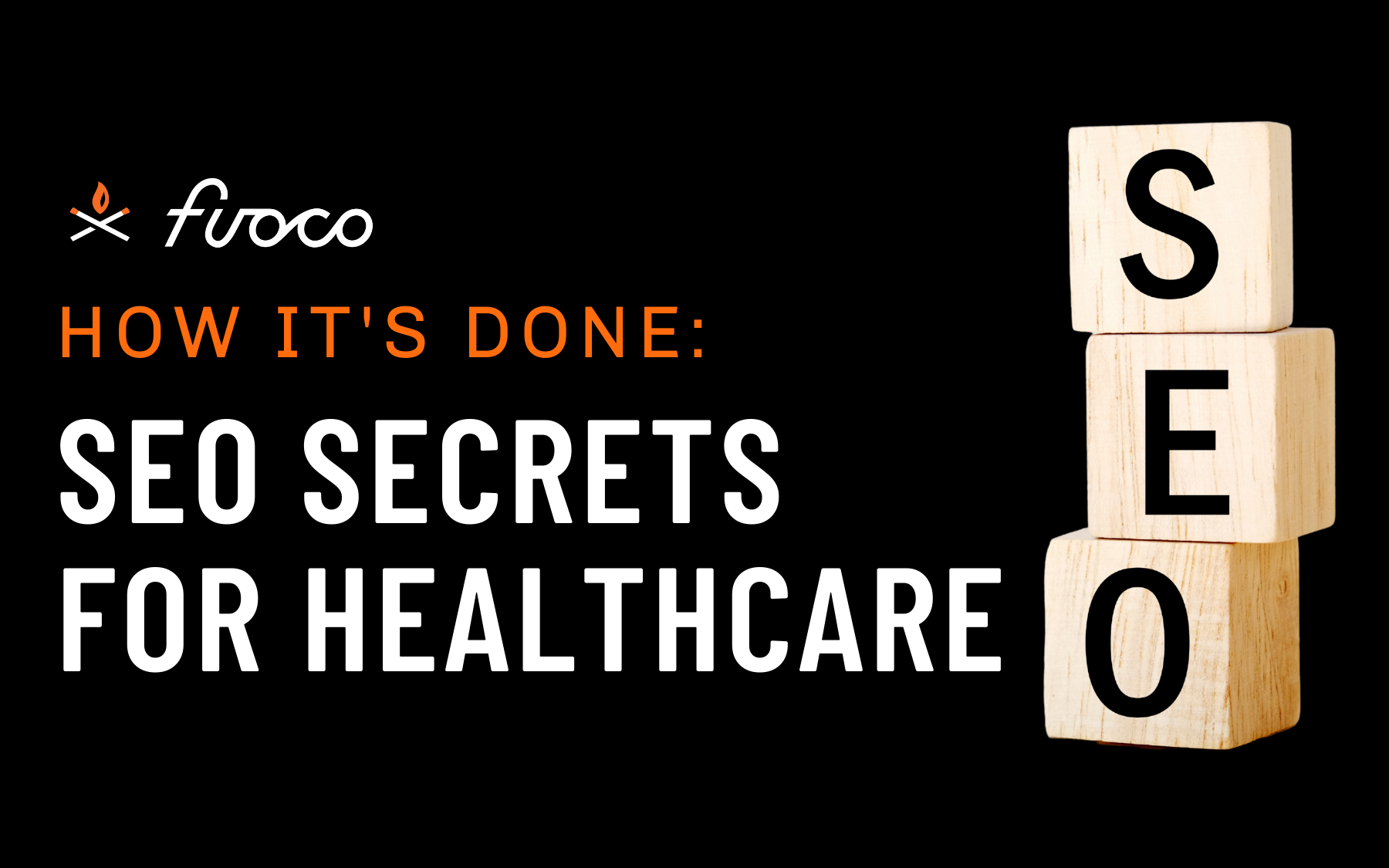
Episode 6, Season 2
SEO Secrets for Healthcare
- May 27, 2021
- 00:07:05
In the very first Spark Session of the How It’s Done podcast, host Kriste Goad reveals the top five search engine optimization (SEO) and Keyword myths, along with three easy steps to get started on SEO. In this episode, learn how to utilize these methods to kickstart your healthcare marketing!
Listen on
Episode Description
Curious about how to get your company found on Google? It starts with a solid SEO strategy. In the very first Spark Session of the How It’s Done podcast, host and Chief Firestarter, Kriste Goad, reveals the top five SEO and keyword myths along with three easy ways to get started on SEO. Learn how to utilize these methods to kickstart your healthcare marketing and create content that ranks, resonates and drives growth.
In this episode, Kriste discusses:
- 5 common SEO and keyword myths
- How to get your company found on search engines, like Google
- The difference between SEO and keyword research
- The importance of a solid SEO, keyword and content strategy
- 3 simple steps to get started on search engine optimization
- Free tools you can use to get started today

“Fun fact: organic search is the single largest source of website traffic. This is why it is so important to have a solid SEO strategy. And a solid SEO strategy starts with a solid keyword and content strategy.”
Kriste Goad
Chief Firestarter, fuoco

More From This Episode
Show Notes
Transcript
Recommended Reading
Show Notes
( 1:23 ): Kriste explains the importance of a solid SEO strategy, and how to get started.
( 1:37 ): Kriste discusses the difference between SEO and keyword research.
( 2:10 ): Kriste debunks 5 common SEO myths.
( 4:45 ): Kriste lays out 3 simple ways to get started on SEO.
Transcript
[00:00:04.260]
Hey, welcome to How It’s Done, a podcast for curious marketers. I’m Kriste Goad, I’ll be your host. I’m really glad you’re here.
[00:00:16.090]
Listen, I’m super excited. This is my very first spark session and I am fired up. I got in a little workout this morning, got back into the cycling studio over at Endeavor Performance for the first time in a month, which is totally ridiculous. Followed that up with a little post-cycling yoga, which I highly recommend. Followed by a venti mocha from the ‘Bucks, which I got for free because I drink so much darn coffee that I redeemed my reward points, hence the Venti.
[00:00:46.270]
Then, as if things couldn’t get any better, this morning I jammed to some Fleetwood Mac on the way to the office. Fleetwood Mac never gets old, am I right?
[00:00:56.020]
OK, so the spark session. We’re going to try these out as quick takes on things that are either on our minds, in the news or that clients are asking us about. Today’s topic – wait for it – SEO secrets for healthcare to make sure your company gets found on the Google.
[00:01:14.650]
We’re going to kick it off with some myth busting and then we’re going to round it out with three simple steps to get started on search engine optimization.
[00:01:23.080]
Fun fact: organic search is the single largest source of website traffic. This is why it is so important to have a solid SEO strategy. And a solid SEO strategy starts with a solid keyword and content strategy.
[00:01:37.810]
OK, that said, let’s talk about the difference between SEO and keyword research. SEO is really the process of making your site better for search engines, like Google, and keyword research is the process of finding and using the right terms so that your content aligns with the terms people are actually using to find whatever it is you’re selling.
[00:01:59.860]
Got it? Don’t worry. I’m going to include everything we talk about today on our blog, which you can find at growwithfuoco.com/blog.
[00:02:10.990]
OK, let’s move on to some myth busting. Today, I want to focus on five common SEO and keyword myths. Myth number one: SEO is too difficult or only for companies with huge amounts of website traffic. Not true. Granted, there’s a lot to SEO, but starting off with something as simple as keyword research and content creation will make a big difference in your organic search traffic.
[00:02:38.320]
The real key is creating great content that people want or need, and that answers their questions about whatever it is you’re selling or want to be known for.
[00:02:48.670]
Myth number two: focus on ranking at the top for one popular keyword. Wrong. Don’t do that. Focusing all your energy on trying to rank at the top of a very popular or very difficult keyword like…healthcare, for example, is not a winning strategy. Especially when you’re just starting out. When you’re just starting out, you want to focus more on ranking for those longer search terms your audience is using.
[00:03:13.180]
These may not have hundreds of thousands of searches per month, but they will be easier to rank for and bring more qualified leads to your site, which is what you want.
[00:03:23.500]
Myth number three: load up your content with keywords. Listen, don’t do this. This is such a no no, there’s an actual term for it. It’s called keyword stuffing and it’s actually been proven to push your page down in the rankings. That’s the wrong direction, people.
[00:03:40.840]
Myth number four: keyword research is a one and done thing. Again, no. SEO and keyword research go hand in hand and should be a living, breathing, ongoing part of all your online content. Search patterns and algorithms change all the time, so you have to change with them. Even social media platforms operate a lot like search engines now, so just be sure to keep a list of your most relevant keywords handy at all times.
[00:04:11.080]
Myth number five: keywords are only important in blogs. Again, keywords are relevant to anything that can be found using a search engine. This includes blogs, your website, social media content, video content, images, pay per clicks, anything you can think of.
[00:04:28.300]
You’re probably thinking, OK, great. So now what? I’m going to share three ways to get started on SEO and then I’m going to share the link to our blog with all this information, plus a bunch of bonus content, including a couple of templates you can follow.
[00:04:45.160]
Top three things you can do – number one: first, create an initial search term list. These are going to be the more obvious terms that are relevant to your organization and your industry. Start with no fewer than ten, maybe no more than like twenty.
[00:04:58.060]
Number two: hone that list, to help figure out the right ones to actually use. The two most important metrics for organic search are monthly search volume and SEO difficulty. So you’re looking for keywords that are high search volume and low difficulty.
[00:05:14.080]
You can do this by leveraging tools like Neil Patel’s Ubersuggest. This is a super cool tool that gives you up to three free searches a day. SEMRush and Moz – also great ones. We’ve got more information and links to these tools on our blog.
[00:05:28.830]
And then number three: hone your existing content to align with your new keyword strategy and establish an editorial calendar. Editorial calendars are my absolute favorite. Seriously, they help you plan content, make sure it’s aligning with your keyword strategy and keep you on track with a consistent publishing schedule.
[00:05:47.430]
That means you’re consistently putting out great content that helps people find you, it’s valuable and, ultimately, it drives business.
[00:05:55.410]
OK, that’s it. Five myths and three steps to get started on the path to getting found on Google, or whatever search engine the kids are using these days. We go much deeper into how it’s done on our blog, where we’ve also included links to some cool SEO and keyword research tools, plus a free downloadable editorial calendar template and a free downloadable keyword list research template.
[00:06:20.520]
Just go to growwithfuoco.com/blog. I hope today’s spark session has sparked something for you. Let me know if there’s a quick topic you’d like me to tackle in future spark sessions. You can email me at kg@growwithfuoco.com. You can also reach us through our Twitter, Instagram and LinkedIn accounts at @growwithfuoco. And be sure to subscribe to this podcast so you don’t miss out.
Recommended Reading
- SEO Tools
- Downloadable Templates:
- Contact Kriste: kg@growwithfuoco.com
- fuoco contact:
More From The How It’s Done Podcast
A Diamond in the Rough: How Digging Deep Uncovered a Wall-Street-Journal-Worthy Story about Lab-Grown Diamonds
January 25, 2024
Why is your PR effort not paying off and what’s the importance of having characters in your marketing efforts? Tune in to learn the disconnect …
Read More →
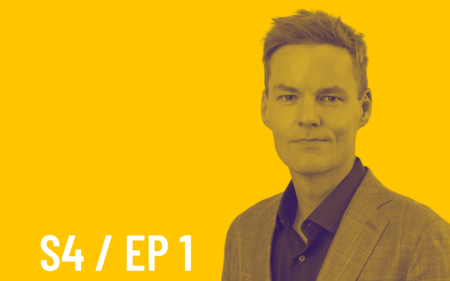
podcast
The Quantum Health Effect: A Behind-the-Scenes Look at Brand Storytelling
January 4, 2024
John Hallock, Chief Communications Officer at Quantum Health, discusses the role CEOs play in PR, what a strategic marketing communications plan should include, and leading …
Read More →
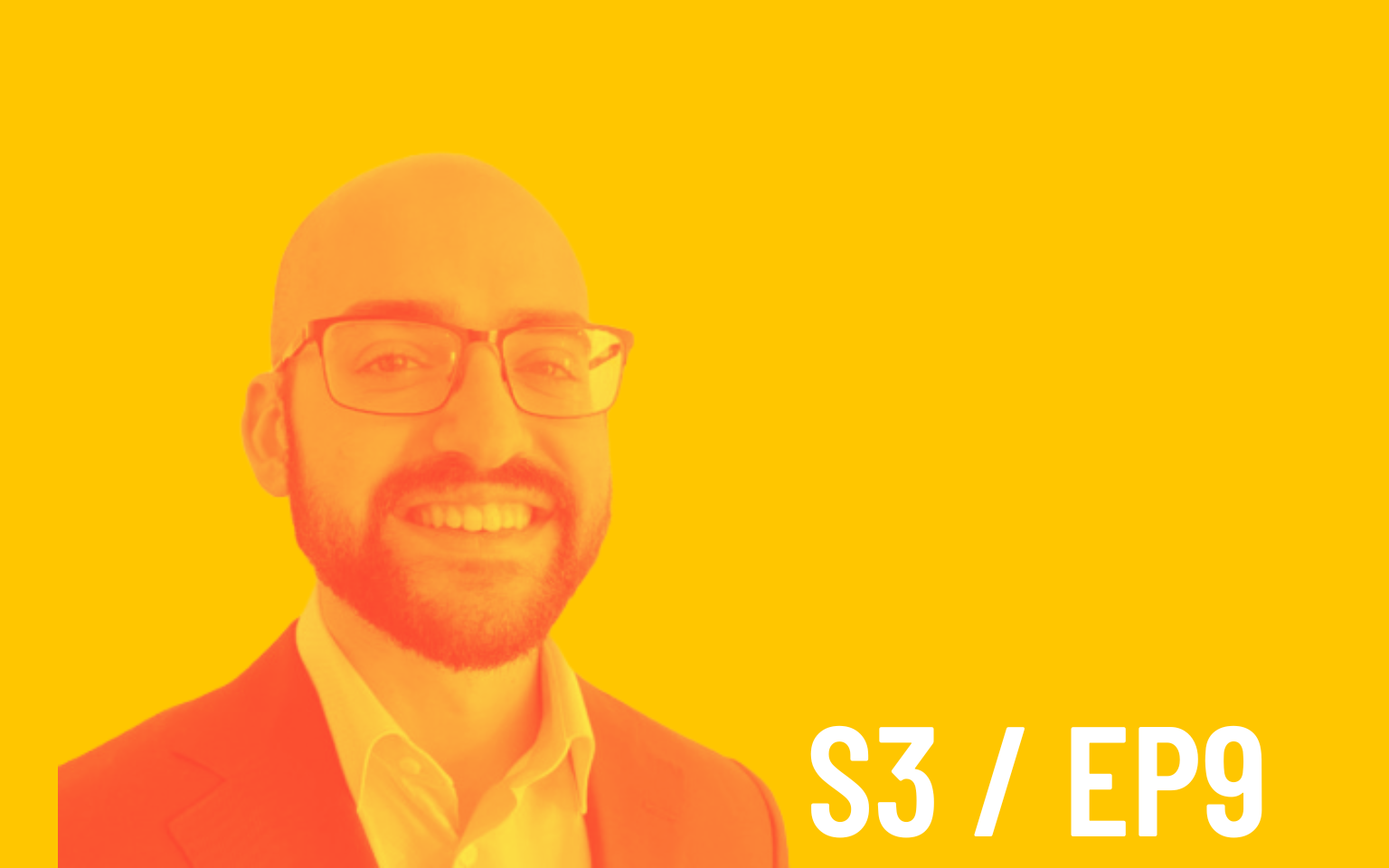
podcast
Why AI is Not Coming for Your Job, the Control Freak Buyer Persona and a Bias for Specialist Agencies
September 20, 2023
Our guest Joe Zappa and host Kriste Goad dive into the measurability of content marketing, AI for marketers, why you should never work with a …
Read More →
Want to be a guest on a future episode?
Share your thoughts directly with our show host, Kriste Goad.

